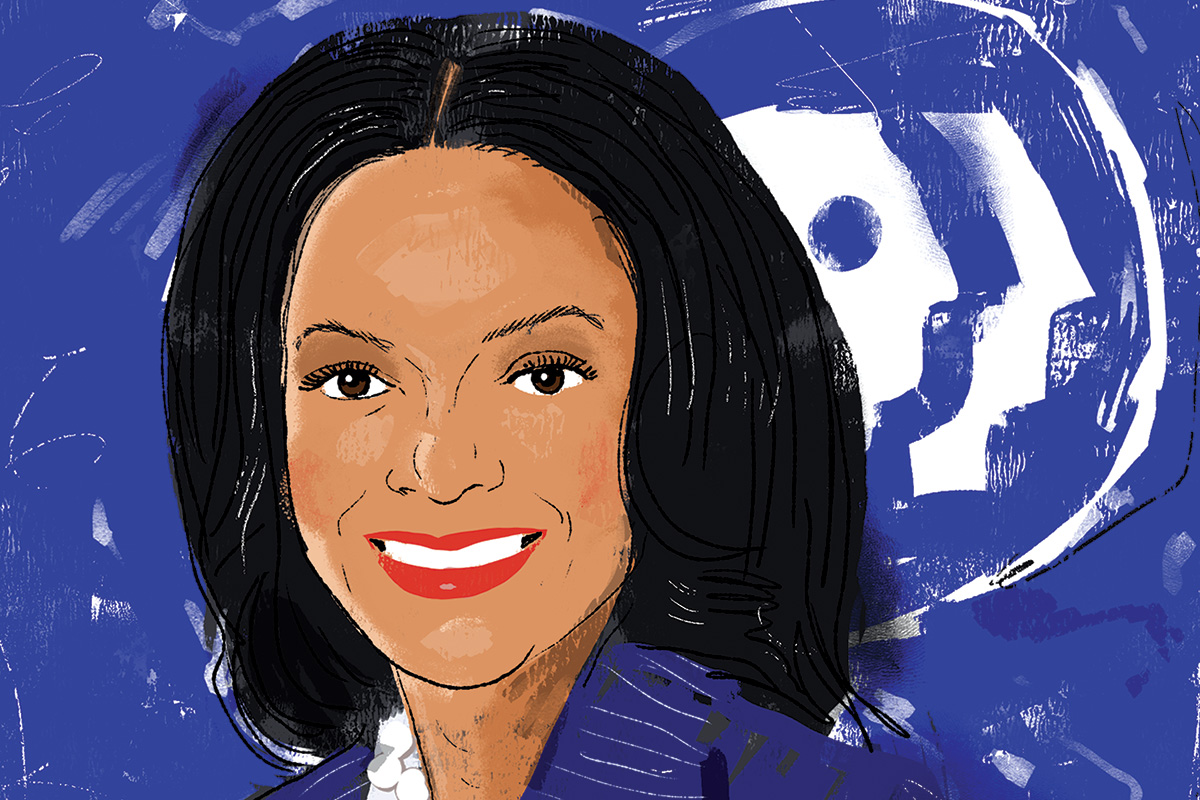Sylvia Bugg, 53, describes her job at PBS as “the chief question asker.” Officially she’s the network’s chief programming executive and general manager for general audience programming, a major position that puts her in charge of “any content that’s on PBS that’s not kids’ content,” she says. Shows she’s brought to air include fan favorites “The Great American Recipe,” “Next at the Kennedy Center” and “Southern Storytellers.” The Clarksburg resident spent several years at Silver Spring’s Discovery Communications before returning to her second employer out of college, PBS, where she has been since October 2020. We asked the chief question asker about what she’s learned along the way.
I had a former boss who oversaw production programming [at Discovery] who was also a mentor. He said something in front of me to someone else: “Sylvia can do anything.” I was really just starting out in the cable world and beginning to understand how it all worked and where I would fit in that experience. And just hearing that really stayed with me.
What he meant was that I could grow into doing many things as it related to my career. At that stage of my career and my life I don’t think I had quite fully realized what my potential was, so when he said that, it meant so much to me. People will often comment on your abilities or your skill, especially early in your career, when you are not in the room, but to hear someone say that when you are in the room—well, it has stayed with me for 20 or 25 years. It instilled in me the confidence to know that if I really put my head down, worked really hard, kept being a really good listener, and surrounded myself with positive people, that I could do anything.
There has always been this idea in leadership that you have to do it all. At some point in my career I felt I could do it all. I can do anything, right? But maybe not all of it. So in some ways those two ideas combined: Doing it all and doing everything. But that was not quite right.
“I try to think about ways to be influential and be a good contributor and be collaborative—and that will really take you far.”
Sylvia Bugg
The signs of a good leader are those who surround themselves with other great leaders and great teams. Early on, I probably did not fully understand that. I may have had situations where I was trying to juggle too much and really needed to think about what it meant to be a good leader. It really is a 360-degree experience. So often we have to manage up, we manage across, we manage down. But the whole idea is 360-degrees leadership, and for me, that’s been a valuable lesson.
I try to think about ways to be influential and be a good contributor and be collaborative—and that will really take you far. That’s one of the principles I’ve tried to live by and lead by—through example.
—As told to Buzz McClain



